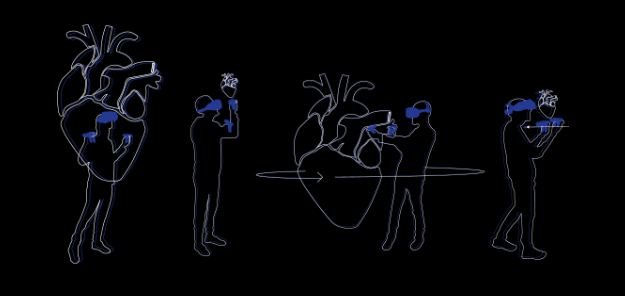For Vinicius Gusmão, technology has transformed the world in all areas, and many companies have not kept up with this fluidity. “The industry asks us for new training and business experiences because traditional models no longer produce the desired effect. The immersion that the virtual reality world allows generates a new form of connection and interaction that would not have been possible before,” said the executive.
ADVERTISING
Present in more than 40 educational institutions in Brazil and abroad, MedRoom is booming.
During our exchange of ideas, the person responsible for the startup's operations explained how virtual reality helps in teaching medicine, and also talked about the challenges of popularizing the technology in Brazil.

MedRoom was the first edtech to stand out using metaverse devices for education. The startup is considered one of the pioneers in the use of virtual reality in medical teaching in Brazil. How did this idea come about?
We founded MedRoom in 2016, to solve some pain points in health education inside and outside Brazil, developing virtual reality (VR) experiences and simulations aimed at health training and education. We know that there is a huge difference between theory and practice in university teaching, so we created a virtual laboratory through which students can analyze the anatomy and physiology of the body in detail.
ADVERTISING
By definition, a metaverse is a 3D virtual environment, inhabited or controlled by real people. MedRoom has always been aligned with this trend since its founding. We explore learning in VR, proposing interaction and observation in a virtual scenario that relates to the user's physical space. In 2021, we launched an application for distance learning and, thus, we were able to group our teaching solutions in VR, apps on smartphones and the web. In this way, we are a success story in the metaverse concept within Brazil.
How can virtual reality technology combined with technical knowledge revolutionize medicine?
We created a virtual universe that can be accessed from different places, at different times, with the aim of optimizing people's learning and making them remember what they learned for longer. There is a lot of literature being produced demonstrating the impact of virtual reality on teaching and healthcare with very exciting data. Faster learning, retention of knowledge for much longer, greater student engagement.
The tool not only helps to reduce the learning curve in several Health Education Institutions, but also allows students to train and apply their knowledge in practice, getting as close as possible to the reality experienced in the profession and, consequently, reducing possible medical errors. in the future. Furthermore, they develop attributes that are essential for healthcare professionals, such as analysis, knowledge and empathy with the person in front of them.
ADVERTISING

Teaching medicine via virtual reality and the possibility of helping people's health through the metaverse itself are ambitious factors for this new moment in humanity. It has been proven that a lot can be done through technology, but is there anything that cannot yet be explored?
This is not a method, but we still have a very big challenge in democratizing access to cutting-edge technologies. Exploring the gadgets that people already have at home is essential to democratize access. Some paths that open up are the scale of a platform like ours to other areas of knowledge, such as veterinary, engineering or even law. There is also the possibility of further deepening simulations in the healthcare sector, bringing increasingly realistic patients or even simulating real patients for pre-surgical training.
What are the startup's expansion plans, do you believe that the metaverse continues to be MedRoom's big bet, taking into account the expansion of web3.0?
This year we began delivering new solutions in addition to anatomy in virtual reality, which is the company's flagship product. We launched our smartphone application which, integrated with the virtual reality anatomy laboratory (Atrium), promotes access to content even outside the classroom. Another new feature are clinical simulations. We are creating patient care simulations within virtual reality in order to provide more safety and prepare the student for practice. The first simulations are being delivered now and we have a development pipeline of more than 30 clinical cases.
See also:




